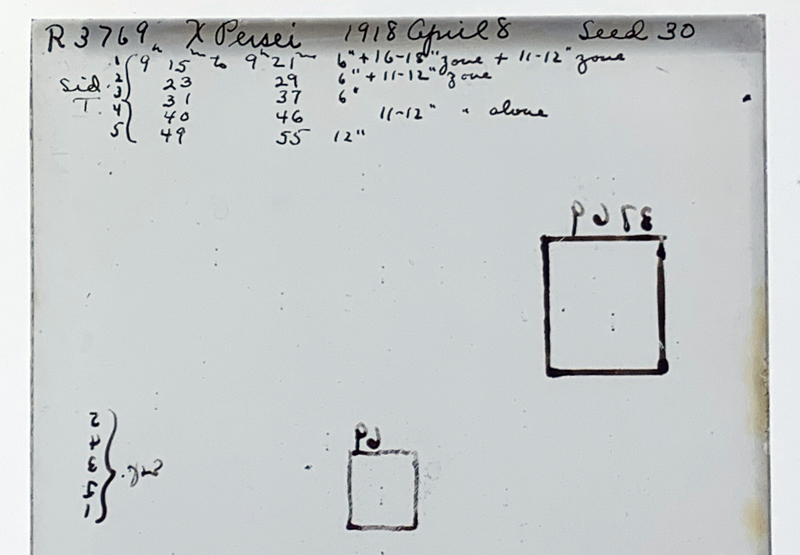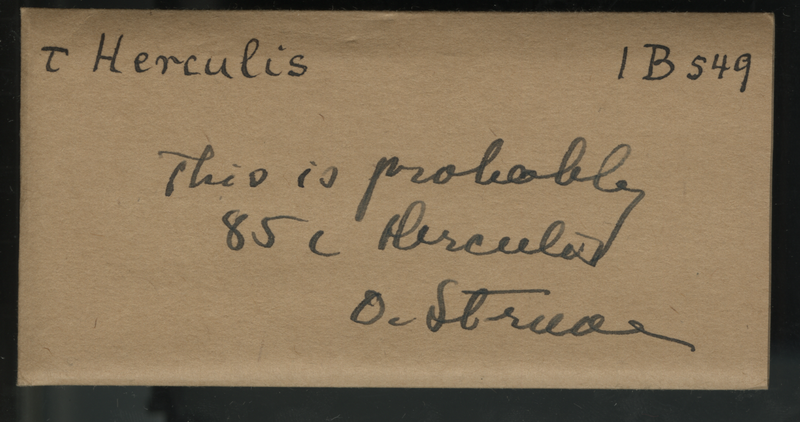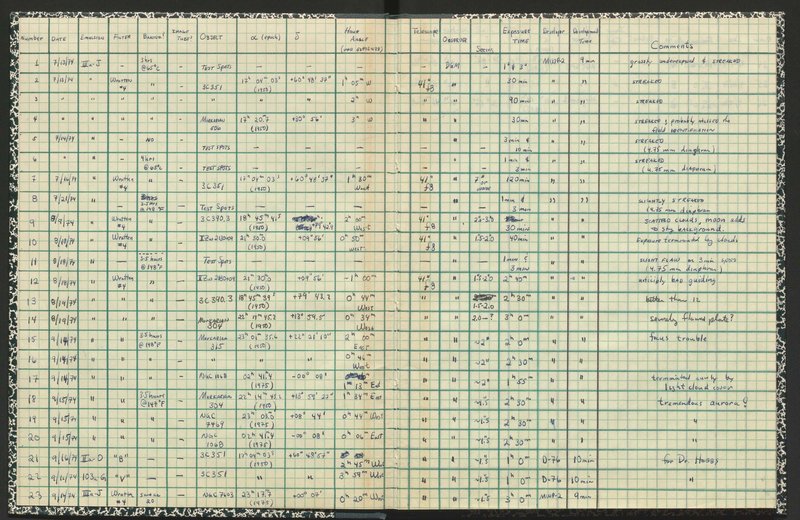Metadata
Quick links
Goals
The glass plates are not a stand alone resource. The metadata of the plate AND associated materials are key to making information findable, searchable, and useful across a range of disciplines. We aim to establish a simplified, efficient approach to collecting complex metadata from plates, envelopes, logbooks, and other sources.
Sources of data
As with any collection, there are several sources of metadata.
Glass plates: The plates contain not only handwritten information like plate number or date, some also contain scientific notations and other evidence of use. The images themselves also contain metadata, which we will explore in more depth when we discuss schema.

Envelopes: The plates’ enclosures include metadata like plate number, date, RA, and dec, sometimes written on the envelope contemporary with the creation of the plate, sometimes later. At times, there is also ephemera in the envelope that contains metadata (for example, paper notes or old envelopes).

Logbooks: Logbooks tend to be the source of the most detailed metadata available, including information about the plate as well as the observer, equipment, conditions, and more. The information in the logbook is generally recorded when the plate was taken, and acts not only as a sequential catalog of plates but also as a de facto journal of observing.

Other: There are numerous other sources of related metadata, including published journal articles, thesis, archival papers and photographs, and more. Many of these other materials are already cataloged utilizing existing schema, both within the Library but also within the field at large. These materials are critical to both a nuanced understanding of the plates and logbooks and the holistic philosophy of this project.
The bulk of our work thus far has focused on descriptive metadata related to the plates, envelopes, and logbooks. Some administrative metadata is collected when these materials are digitized, and we will address the questions of more extensive administrative and structural metadata as we move closer to our goal of building a robust database.
Ongoing research
There is still much work to be done with transcription and metadata, both for capture and cataloging. We will continue to develop the style sheet for transcriptions, and learn more about the methods of associating markup with PDFs to increase SEO and make the files keyword searchable. Ongoing research on the speech to text transcription process, including applications and strategy, will allow us to make this a more efficient process.
As we move to the next phase, building a database becomes more urgent. As this effort progresses, we will work with the UChicago Library’s Digital Library and Development Center and Center for Digital Scholarship, and Metadata Management Services to create a metadata application profile, identifying public fields, and establishing controlled vocabularies. This collaboration will of course address how the metadata application profile and vocabularies integrate into the wider Library systems across collections and address the question of administrative and structural metadata collection. We will test developed methods and best practices on a small subset of plates and associated materials to stress test the concepts before moving ahead on the larger database buildout.
Citizen science continues to be an interesting possibility for transcription and metadata collection, and the UChicago team will collaborate with organizations like Zooniverse and other plate repositories like Harvard who have worked with citizen scientists on similar transcription projects. We recognize this type of initiative would necessitate not only the planning related to the project itself, but also the infrastructure to support the results, so it remains a long term possibility.
Support for this project comes from the National Science Foundation (Grant AST-2101781), University of Chicago College Innovation Fund, John Crerar Foundation, Kathleen and Howard Zar Science Library Fund, Institute on the Formation of Knowledge, and Yerkes Future Foundation.